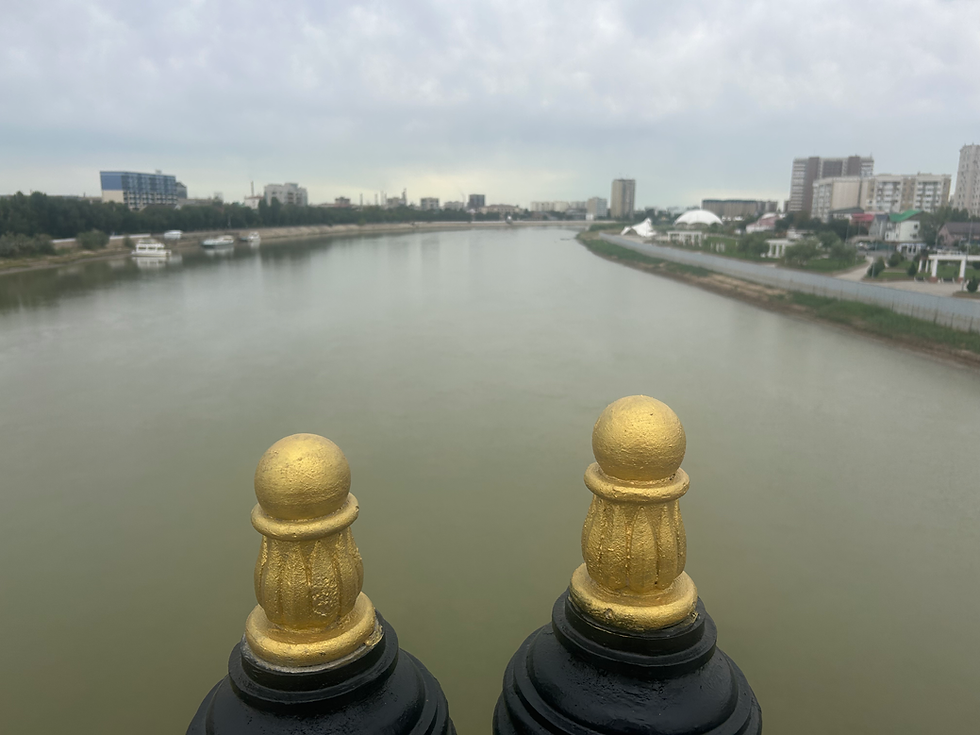Gwadar, Baluchistan
- Wolfgang Fobo
- 29. Dez. 2021
- 4 Min. Lesezeit
Aktualisiert: 12. März 2024
Balochistan is not exactly a region that the ordinary tourist endeavors to visit. What can be read in the press was that Baluchistan is a troubled region, hampered with conflicts against the central government of Pakistan, giving shelter to "terrorists", which fight, among others, against the Chinese, and where the Pakistani Taliban might show up, every now and then. Even if you wished to visit Baluchistan, you need a special permit, which is issued by the Pakistani Security Office. And once you are in, you will be escorted by police or army forces most of the time.

Never mind, apart from the guides of the tour operator, we were 8 travel addicts, all curious what would await us behind that curtain, visiting a region that is usually off-limits for foreigners. Remains to say that the permit was finally issued one day before the scheduled start of this journey. With my personal history of being active in China business, in particular infrastructure business, I had a special interest in Gwadar port, which holds great strategic and economic significance for Pakistan. Gwadar is - or will be - the world's largest deep sea port, and is operated by the Chinese. Apart from the port, the Chinese build a four lane expressway, to facilitate access to the port. Gwadar is strategically located at the apex of the Arabian Sea and at the mouth of the Persian Gulf. So, of course this investment into infrastructure will boost the trade and commercial activities, particularly of Baluchistan province. But I would not be surprised if the Chinese also would have a benefit, or even a hidden agenda, being able to operate the biggest sea water port in the world. This is geopolitics, it helps Pakistan, it helps China, and it unites the two in their opposition against India.
While Gwadar was certainly not the focal point of this journey, I was simply curious whether I could catch a glimpse of this great political game going on. While I admire the Chinese ability to construct roads, ports and bridges throughout the world, it seemed to me that at least in Gwadar they are not much liked by the Balochi people. Once we passed a jobsite, with lots of Pakistani security every few meters, and because it was evening, we could see from far the Chinese returning to their guarded camp. Three armed pick-ups in front, to be followed with two pick-ups taking the Chinese back, and to be followed by another three heavily armed pick-ups, this seems to be their daily convoy in and out of their camp (we 8 foreigners just had only 1 army escort, and this not always!). This contrasts to the propaganda that can be seen, Chinese-Pakistani friendship for ever! Privately I was told that very often the Chinese lack a feel for the Pakistani people (I heard the same also in other countries), and even though this friendship is highly postulated, it seems that traveling of tourists between these 2 countries is discouraged. Once more I could not get rid of my feeling that what the propaganda wants to make us believe has nothing to do with the actual situation on site. (Let me add that personally I never had any problems with Chinese, I always enjoyed being in China)

Of course we were given sufficient time to come in contact with the Balochi. Accompanied with the strict advice never to make a foto of a woman - their male escorts would create trouble. Trouble that I entered into, when a Baluchi suspected me to make a video (I had my iPhone always ready to make fotos, and looking over my shoulder at the screen it looked like taking a video). So our guide had to bail me out - this was my only slightly breathtaking situation in the 9 days that we were touring through Baluchistan.

We then also paid a day trip to Jiwani, which is the town closest to the Iranian border that we were permitted to visit. In Jiwani, smuggling of petrol and diesel from Iran is big business, even somehow tolerated by the Pakistani security forces. As we could discuss with an officer of the Pakistani coast guard, once you would curb smuggling, you would also destroy the livelihood of the people, and as long as you cannot offer alternatives to smuggling, you would create enemies, which the Pakistani government cannot afford.

By the way, depressing at least for me was the plastic garbage that you see virtually everywhere. For me, Jiwani is the perceived capital of plastic garbage. Nobody cares. Once more I told to myself that "I can leave, you have to stay". No, I don't want to be unjust to the Baluchi, they have a hard time, struggling for survival. And they were always so friendly towards us. Garbage management is probably quite low on their pyramid of needs. And they have a great countryside (sometimes specked with plastic garbage). But I am happy not to be born over there.

As a summary of this journey, what remains? Any lesson learned? Personally, for me, the lesson learned is rather a repetition or confirmation of what I already learned: in places of great poverty and neglect people are very friendly and even curious. Second, structures can be observed where the mighty coalesce with other mighty ones, displaying a propaganda show which not necessarily reflects what the people feel. So you always have to distinguish the people from a government that the ruled ones cannot change. (That reminds me, when I was 19 years old, traveling through Pakistan, when a Pakistani shouted at me that I was nothing but a little Hitler...)
So I returned home happily, once more being reminded in what paradise I happened to grow up.



Kommentare